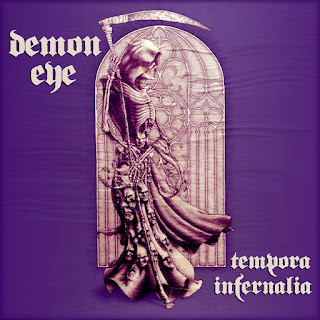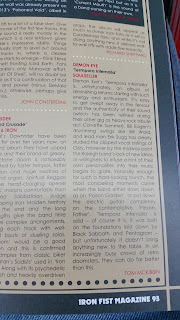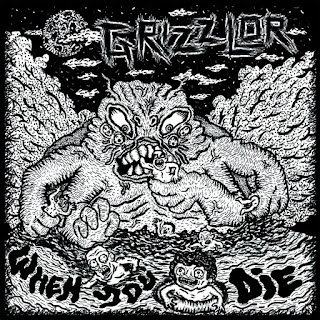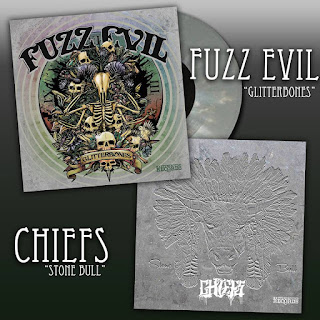(Southern Lord Records, 2014)
Earth’s post-reformation output has been widely praised; while the band laid dormant between the mid-nineties and mid-2000s, the likes of Sunn O))) and Teeth of Lions Rule the Divine did much to help build a wider appreciation for Earth, allowing them to enjoy the same kind of rebirth as fellow phoenix-from-the-ashes reformers Swans. If Earth‘s early discography was characterised by low-fi, long-form noise and drone metal, the new incarnation of the band was elegant, majestic and richly instrumented – even when re-visiting and re-imagining their early work on 2007’s Hibernaculum EP. In many ways the goodwill built up across the successive albums reached its zenith on the divisive, two-part album Angels of Darkness, Demons of Light which some criticised for being uninspired and plodding, while others enjoyed it as much as anything the band had ever done.
Whether this naysaying registered with the band or not is pure speculation, but Earth have returned with an album which definitely speaks to another rebirth in sound. Primitive And Deadly is a rock album; from the opening chugs of Torn By The Fox Of The Crescent Moon, Carlson and co let the distortion ring out, and it doesn’t let up for the rest of the record. Admittedly, distortion is now more of a texture than an all-encompassing – even, confrontational – mantra as it was on Earth 2: Special Low-Frequency Version, but its presence marks a definite change of sound for the new era of the band. And then there’s the album’s biggest talking-point – the decision to include vocals on three of its five songs.
This isn’t the first time Earth have had vocalists feature on their records of course; some of their earliest recordings feature Kurt Cobain’s distinctive voice, and Carlson himself even sang on Earth’s most straight-foward “rock” album, Pentastar: In the Style of Demons. But it has to be said, hearingMark Lanegan – another Seattle grunge survivor – singing over Earth‘s music is an utter delight which adds a whole new dimension to the band’s sound. Lanegan has collaborated with a vast array of musicians over the course of his illustrious career, but this collaboration with Earth must be one of the most satisfying, and weirdly full-circle collaborations in his entire back catalogue. Ouroboros, it would seem, is fixed.
Lanegan hasn’t sounded as blissfully tripped-out as he does on There Is a Serpent Coming since his Screaming Trees days, Earth‘s gentle, lysergic lullaby sharply contrasting with Lanegan’s ominous, end-time proclamations. Fuzz rolls off Carlson’s guitar notes beautifully, the distortion giving each note extra space to reach out across a psychedelic landscape which the band creates and which Lanegan illuminates. Elsewhere, closing track Rooks Across The Gates sounds like a slowed down Lanegan solo track from his Winding Sheet days, bluesy and sandswept but full of Earth‘s trademark twists and turns in the chord progression.
The real revelation on Primitive And Deadly, however, is Rabi Shabeen Qazi who provides vocals on the album’s centrepiece, the sublime From The Zodiacal Light. Not only is the track one of the most gracefully stream-rolling songs that Carlson has written in a long time, Qazi (of the band Rose Windows) completely owns it with her incredible voice, which reminds us, at times, of Windhand’s Dorthia Cottrell. It’s no easy task for a singer to leave their mark on a track as monumentally huge as this, but Qazi somehow manages it, sounding at once sweet and omnipresent. Expect an influx of people claiming to have always been “down” with Rose Windows after this album properly sinks in – Qazi’s involvement here has certainly made this reviewer want to investigate them further.
Carlson has remained busy in the intervening years between Earth albums, releasing material under his Drcarlsonalbion moniker and touring frequently, but Primitive And Deadly still ought to be considered a triumphant return for one of the most influential bands of our time. Reinvigorated by a slight change in sound, and with a little help from some friends (which also include Built To Spill’s Brett Netson, and Randall Dunn), Earth continue on their singular path, sounding better than ever while attempting more traditional song structures. There is something almost primal and urgent about Primitive And Deadly‘s rock-leanings, an element that is infectious and enveloping. Before they may have lulled you gently into a meditate state – now let Earth stir your senses.
[Originally published on The Sleeping Shaman, 05/09/2014]











